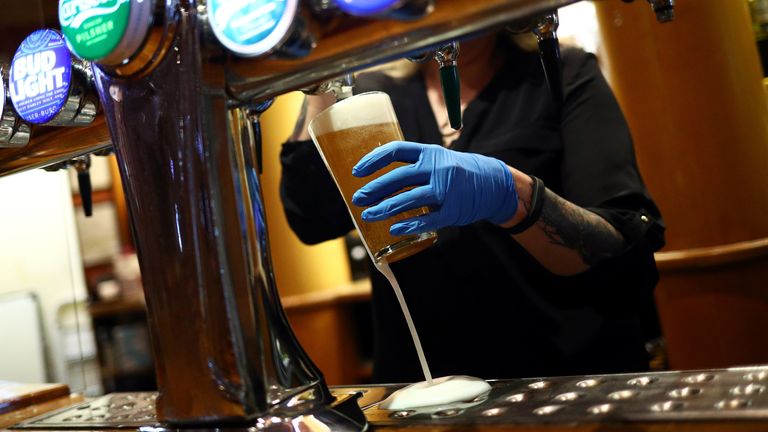
Those feeling the effects of the night before on New Year’s Day will be disheartened after a new study revealed that so-called hangover cures showed no convincing signs of working.
Researchers from King’s College London and South London and Maudsley NHS Foundation Trust assessed 21 placebo-controlled trials of 23 treatments thought to alleviate hangovers.
These included red ginseng, Korean pear juice and vitamin supplements, among others.
Only a few of the so-called cures appeared to improve hangover symptoms, which the NHS lists as headaches, sickness, dizziness and dehydration.
However, proponents of Dry January will be pleased by the study’s finding that “the surest way of preventing hangover symptoms is to abstain from alcohol or drink in moderation”.
Each trial examined the effects of a different type of so-called remedy on groups of drinkers who took part in “alcohol challenges” across the world.
In the trials, 386 participants aged between 18 and 65 from across the world were given alcohol followed by an “intervention substance”.
The trials were limited in their reporting of the nature and timing of drinking, and there were also differences in alcohol type across the trials, and whether alcohol was given alongside food.
Of the total 21 trials, eight were conducted exclusively with male participants.
Whisky, vodka, wine and beer were among the drinks consumed by participants from countries including the UK, US, Australia, India and Finland.
Only seven of the 23 substances tested showed any signs of improving symptoms, but even this was deemed “low-quality” and unconvincing scientific evidence by the researchers.
These included Korean pear juice, red ginseng, Pyritinol, a vitamin supplement, HDE, L-cysteine/B and C vitamins, Tolfenamic acid and clove extract.
Clove extract, Tolfenamic acid and Pyritinol were the “top three” that showed the strongest evidence of working to combat a hangover, according to the scientists.
Twelve of the substances, including Rapid Recovery, prickly pear, Naproxen, Propanolol and artichoke were found to have had no effect on symptoms in comparison with the placebo.
The outcome of the tests on the remaining four substances, including Morning Fit and curcumin, were not reported.
The lead author, Dr Emmert Roberts, said: “Hangover symptoms can cause significant distress and affect people’s employment and academic performance.
“Given the continuing speculation in the media as to which hangover remedies work or not, the question around the effectiveness of substances that claim to treat or prevent a hangover appears to be one with considerable public interest.
“Our study has found that evidence on these hangover remedies is of very low quality and there is a need to provide more rigorous assessment.
“For now, the surest way of preventing hangover symptoms is to abstain from alcohol or drink in moderation.”
The NHS website states that dealing with a hangover and its painful symptoms involves rehydrating your body, for which the best time is before going to sleep after drinking,
Painkillers are advised for helping with headaches and muscle cramps, while sugary foods “may help you feel less trembly” although, in some cases, “an antacid may be needed to settle your stomach first”.
The NHS also recommends bouillon soup (a thin, vegetable-based broth) as a means of replenishing depleted resources and for fragile stomachs.
“You can replace lost fluids by drinking bland liquids that are gentle on your digestive system, such as water, soda water and isotonic drinks,” the NHS website adds.
However, drinking more alcohol – known as “hair of the dog” – is not said to help and may only delay the appearance of symptoms until the alcohol wears off.
Adults are recommended to not drink more than 14 units a week – six pints of average-strength beer or 10 small glasses of low-strength wine – on a regular basis.








More Stories
5 Reasons Why Everyone Should Look Forward to Save Earth Mission’s Takeoff Event
Save Earth Mission’s Takeoff Event Countdown Starts: Get Ready to Witness History
The Save Earth Mission: A Global Movement Towards a Sustainable Future